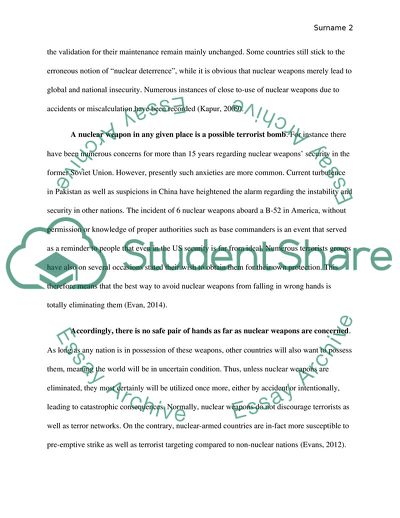Cite this document
(Why Nuclear Weapons Should Be Banned Assignment, n.d.)
Why Nuclear Weapons Should Be Banned Assignment. https://studentshare.org/sociology/1851412-nuclear-weapons
Why Nuclear Weapons Should Be Banned Assignment. https://studentshare.org/sociology/1851412-nuclear-weapons
(Why Nuclear Weapons Should Be Banned Assignment)
Why Nuclear Weapons Should Be Banned Assignment. https://studentshare.org/sociology/1851412-nuclear-weapons.
Why Nuclear Weapons Should Be Banned Assignment. https://studentshare.org/sociology/1851412-nuclear-weapons.
“Why Nuclear Weapons Should Be Banned Assignment”. https://studentshare.org/sociology/1851412-nuclear-weapons.


